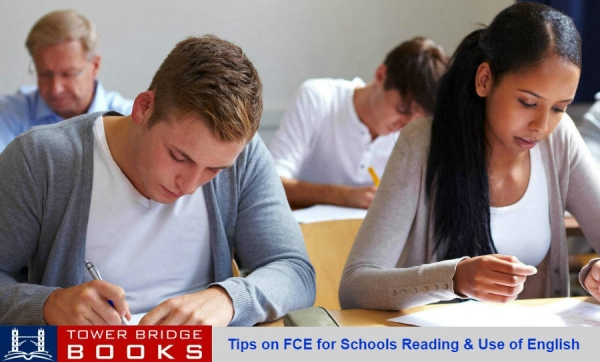In order for students to excel in the Reading & Use of English section of FCE for Schools, exposure to vocabulary is of utmost importance, providing students with a plethora of articles on a wide array of topics on an everyday basis. On the first day of class, teachers should brainstorm topics of interest for their students, and show them videos from the internet, inviting them to discuss all sorts of topics, or providing them with the necessary topic vocabulary, and assigning an article to be done for homework. This way, both writing and listening skills are honed but, most importantly, students’ vocabulary is enhanced.
Another way to help students improve vocabulary skills is by assigning a novel for the whole class to read throughout the school year. By reading one chapter in class per lesson, students actually practise public speaking (intonation, clear expression, voice colouring), and are exposed to slightly more demanding vocabulary and the structures of the language (set phrases and idiomatic expressions). Apart from boosting their vocabulary, they also work on their speaking skills, which is so important in the exam to express yourself and colour your voice while speaking, not just regurgitating words without understanding them.
Word games are an essential part of lesson plans. Teachers need to prepare beforehand board games with phrasal verbs, verbs with prepositions, and idiomatic expressions, which students enjoy while learning at the same time. Of course, this is an extremely constructive way of recycling vocabulary. Chances are that students will come across the same or similar words in the texts they read or the exercises they are required to do as part of their preparation for the exam.
Fun activities for students to prepare for the class include students writing or finding an article from the internet or any other source, and preparing a Cloze Test by removing words and, with the help of the school secretary, the teacher can prepare extra worksheets. You will be amazed at the satisfaction students show when their article is being worked on by their classmates, and they know the answers while the rest don’t. In this way, students can improve on the thorniest area of Use of English Part 2.
By being exposed to a higher level of vocabulary through the above mentioned, students master what is called ‘tolerance for ambiguity’, which means they can guess the meaning of unfamiliar words and expressions from the context. As a result, they don’t get discouraged when faced with more demanding texts, and excel in Parts 5, 6, and 7 of the exam (the Reading Comprehension section).
This is the rationale behind our book. The level of the vocabulary and expressions found throughout the eight tests is slightly higher than that expected in the exam, with gripping articles, where students actually learn and are informed of a variety of topics through our reading extracts and exercises in text format. Thus, you will be surprised at your students’ exam results when these come out (after you have used the specific book).
Last but not least, just like all of our books, First for Schools has an online version, which helps every student practise Reading & Use of English skills at home by saving time in the classroom. Students not only receive their test scores, but they are also shown annotations for every mistake that analyse the definitions of words or grammatical structures. Students are advised to jot down these annotations, study them, and in the next lesson the teacher, through this online version, has access to every student’s performance, and knows what mistakes have been made. This system promotes individualised learning, which accounts for the high pass rates of our students. Also, the teacher can use all the mistakes made by students, and prepare games and activities, as mentioned above.
Success…it’s all about making a difference!







